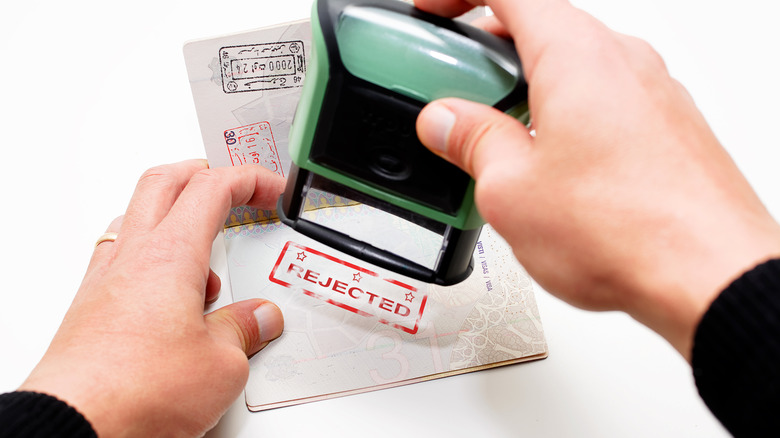Travel Guides International
Caitlyn Knuth
Crossing international borders in pursuit of new experiences can be exciting, but it can also come with some serious paperwork included. Depending on what country your plans have you heading toward, there’s a good chance a visa might be necessary to secure entry. Unless you’re part of a visa-exempt program because of your country of origin, applying for and successfully receiving a visa is often the only way you can legally turn your travel plans into a reality.
According to the Migration Policy Institute, the United States granted around 6.8 million non-immigrant visas to visitors in 2022. The vast majority of these were tourist visas and temporary business visas. While those numbers might seem vast and inviting, it’s important to keep in mind that Reuters reports the U.S. also denies an average of 4 million visa applications annually.
Beyond the rules and regulations in the U.S. when it comes to visas, each country has its own set of visa application regulations in place. The protocol for approving or denying applications is just as varied from country to country. One shared factor is that most visa applications are extremely specific and leave no room for error.
Putting detailed time and effort into a visa application only to receive a rejection is certainly disappointing. Rejection can also negatively affect your future travel plans. Fortunately, the type of rejection you receive makes a difference and there are a variety of ways to avoid these worrisome issues in the future.
Possible reasons for rejection

Adamico70/Getty Images
A visa rejection is sometimes called a visa refusal, but the outcome is the same. That visa you applied for isn’t going to be yours after all. Most countries send a letter to applicants informing them of the rejection as well as the reasons behind the decision.
In the best-case scenario, you’ve made a minor technical mistake on the application. This means there’s a good chance your rejection letter could include an invitation to correct the error and resubmit the paperwork. Other reasons for rejections aren’t as forgiving.
A common reason visa applications are rejected is a lack of sufficient explanation as to why you’re traveling. Officials often view this as suspicious and reason enough for refusal. A visa can also be rejected when applicants can’t show proof of funds, or there are irregularities in their travel history.
Some countries immediately reject applicants with a criminal past. An invalid passport also leads to a quick rejection letter. Any time forged documents become part of a visa application, a visa refusal is sure to follow.
It’s common for applicants who have been denied a visa to receive a stamp in their passport stating the rejection. This stamp can negatively affect future travel and visa applications as it is easily visible to all immigration officers. A rejection stamp often leads to a closer look at your travel history and in some countries, simply makes your application more suspicious.
Avoiding issues on future applications

Media_Photos/Shutterstock
A rejection doesn’t automatically mean all future visas for traveling internationally will be denied. However, the reason for a refusal matters. Issues regarding travel purposes can be rectified on future applications with more detailed information. Criminal charges or fake documentation impact future travel significantly with a higher risk of visa refusals altogether.
A refused visa can significantly delay your future travel. Most countries have a firm re-application timeline in place when a visa is refused. This can range anywhere from 6 months to a year.To best avoid a visa rejection, never lie on your application. Many applications include a section that asks about past visa refusals. Trying to cover up a previous rejection is futile as many countries openly share this information and deceit is a sure path to yet another rejection letter.
Authentic and detailed documentation is always going to be vital when completing a visa application. Double and even triple checking your work is important before sending your application on its way. It’s also worth your while to make sure your passport will be valid for the duration of your requested visa dates and beyond.
If you’re worried about making a mistake on an important visa application, working with a visa agency is always a good choice. Letting a professional make sure you have everything in place can provide significant peace of mind. It will also likely improve your chances of receiving the visa successfully and keeping your travel plans in place.

